
So, last weekend was a bit of a big deal. Between the release of Avengers: Endgame and the Game of Thrones episode “The Long Night”, the Sci-Fi/Fantasy genre just experienced one of the best weekends in genre history. Endgame shattered opening weekend box office records. GoT hit 17.8 million viewers, HBO’s highest viewing total in its history. Endgame was the culmination of 21 movies and 10+ years of storytelling, arguably (only for the most argumentative) the most ambitious film project in cinematic history. GoT, on the other hand, was hurtling toward a potential conclusion to the storyline that’s been in the making since the first scene kicked off the show over eight years ago. So yeah, last weekend was a huge deal. As a big fan of the Sci-Fi/Fantasy genre I was naturally excited to experience it all. Yet on Monday morning as I was catching up on group texts and discussing things at the office I kept circling back to one thing: women played a massive part in creating the biggest weekend in this genre. This realization hit me in two big ways. First, the female characters I’m referring to were not just secondary characters with big moments, but major franchise characters who greatly impact the story. Second, the execution of that was so natural that it didn’t even dawn on me until much later.
When you consider the Sci-Fi/Fantasy genre there is not a shortage of significant female characters. Ripley (Alien), Katniss Everdeen (Hunger Games), and Buffy (Buffy the Vampire Slayer) are examples of female leads who were the face of their respective franchises. When you look at the historically great movies and TV shows in the genre, though, female involvement is still present but with significantly less star and narrative power. Star Wars featured a prominent female character, Leia, but the story was still Luke’s story. The second trilogy had Padmé, but not much female representation beyond that. Battlestar Galactica had a number of prominent female characters, but at the end of the day the storylines were driven mostly by an Adama or Gaius Baltar. The Harry Potter franchise had Hermione and a host of other major female characters, but Harry and Ron were still the bigger focal point. Lord of the Rings had Arwen, Eowyn, and Galadriel which were important to the story, but outside of only a few key moments that story was definitely driven by the male characters. The list goes on to include other big franchises like The Matrix, Avatar, Lost, and others. Even the earliest movies of the Marvel Cinematic Universe had minimal female involvement. This is not an indictment of those franchises, in fact I love them all, but the significance of the female characters in those franchises didn’t seem nearly as noticeable when compared to Endgame and “The Long Night”.
That brings me to the other point. The storytelling which got us to last weekend’s big moments has been leading us there for several years. Game of Thrones has been building its female characters since the beginning of the series. Cersei and Daenerys have been main characters since the first episode. Sansa, Arya, and Brienne have grown throughout the series to the point that they are main characters as well. Going into this final season Arya and Sansa had been added to that upper echelon of main characters formerly reserved for Jon, Dany, Tyrion, Cersei, and Jamie. As the events unfolded in “The Long Night” there were some narrative surprises including almost all of the aforementioned female characters, but they were 100% believable. Those characters had become so multidimensional that it didn’t seem out of character for a normally diplomatic character to pick up a sword and start stabbing, or for a battle hardened killer to show signs of doubt and resort to running away. A big part of what made “The Long Night” such a big event was that natural progression of those characters.

The path to prominent female inclusivity for Endgame was a little less organic than Game of Thrones, at least for the first half of the MCU. Women have been involved in most every MCU movie, but outside of Black Widow, those female roles were mostly limited to non-superhero support roles. There became a slow influx of female hero characters like Scarlet Witch, Okoye, Wasp, Gamora and Nebula, among others. That culminated in this year’s Captain Marvel, the first MCU movie to feature a female lead. By the time of Endgame, many of those characters are no longer around due to Thanos, but there’s still a prominent crew of female superheroes which impact the events of the movie. I won’t say more than that with regards to characters and events; but like “The Long Night”, the female characters significantly affect key sequences which impact the story. Those characters are such an ingrained part of the story at this point, though, that those moments felt natural and not forced.

While I’m heaping praise all over these two franchises I do want to acknowledge some of the franchises which laid the groundwork that helped bring more female inclusivity to the Sci-Fi/Fantasy genre. As I mentioned above, Aliens, Buffy, and Hunger Games were big in promoting female star power in the genre. In recent years Wonder Woman, Star Wars VII/VIII, and Rogue One have been instrumental in pushing women to the forefront of Sci-Fi/Fantasy films. Women are also becoming bigger characters in other traditionally male-dominated forms of entertainment. This year’s Wrestlemania was main-evented by a Women’s Triple Threat Match. At the time of that event it wasn’t a stretch to say that the three participants in the match were near-consensus top five superstars among ALL wrestlers, not just women. Becky Lynch was considered by most to be the top star in the business, which was unheard of in the wrestling world.
Also, while this post is overwhelmingly positive toward the MCU and Game of Thrones, this is not to say that everything those franchises have done with female characters has been perfect. Both have given in to stereotypes and genre tropes which marginalize groups of people, not just women. I also don’t want this post to be some sort of declaration that women have taken over Sci-Fi/Fantasy and climbed the mountaintop or broken a glass ceiling or whatever cliché you want to use. Despite the fact that these characters were allowed to organically grow into this level of prominence and that it took me a while to recognize the difference of those moments versus the genre expectation, the fact is that I did notice it and it did stick out, which means it’s still not normal. As a guy I don’t feel remotely qualified to talk about representation, or lack thereof, for women or any group, but as a Sci-Fi/Fantasy fan it was really cool to see these characters get big moments on the biggest stage.
I’d love to hear what you thought of Endgame and “The Long Night”, be sure to leave your comments below.
 So, last weekend was a bit of a big deal. Between the release of Avengers: Endgame and the Game of Thrones episode “The Long Night”, the Sci-Fi/Fantasy genre just experienced one of the best weekends in genre history. Endgame shattered opening weekend box office records. GoT hit 17.8 million viewers, HBO’s highest viewing total in its history. Endgame was the culmination of 21 movies and 10+ years of storytelling, arguably (only for the most argumentative) the most ambitious film project in cinematic history. GoT, on the other hand, was hurtling toward a potential conclusion to the storyline that’s been in the making since the first scene kicked off the show over eight years ago. So yeah, last weekend was a huge deal. As a big fan of the Sci-Fi/Fantasy genre I was naturally excited to experience it all. Yet on Monday morning as I was catching up on group texts and discussing things at the office I kept circling back to one thing: women played a massive part in creating the biggest weekend in this genre. This realization hit me in two big ways. First, the female characters I’m referring to were not just secondary characters with big moments, but major franchise characters who greatly impact the story. Second, the execution of that was so natural that it didn’t even dawn on me until much later.
When you consider the Sci-Fi/Fantasy genre there is not a shortage of significant female characters. Ripley (Alien), Katniss Everdeen (Hunger Games), and Buffy (Buffy the Vampire Slayer) are examples of female leads who were the face of their respective franchises. When you look at the historically great movies and TV shows in the genre, though, female involvement is still present but with significantly less star and narrative power. Star Wars featured a prominent female character, Leia, but the story was still Luke’s story. The second trilogy had Padmé, but not much female representation beyond that. Battlestar Galactica had a number of prominent female characters, but at the end of the day the storylines were driven mostly by an Adama or Gaius Baltar. The Harry Potter franchise had Hermione and a host of other major female characters, but Harry and Ron were still the bigger focal point. Lord of the Rings had Arwen, Eowyn, and Galadriel which were important to the story, but outside of only a few key moments that story was definitely driven by the male characters. The list goes on to include other big franchises like The Matrix, Avatar, Lost, and others. Even the earliest movies of the Marvel Cinematic Universe had minimal female involvement. This is not an indictment of those franchises, in fact I love them all, but the significance of the female characters in those franchises didn’t seem nearly as noticeable when compared to Endgame and “The Long Night”.
That brings me to the other point. The storytelling which got us to last weekend’s big moments has been leading us there for several years. Game of Thrones has been building its female characters since the beginning of the series. Cersei and Daenerys have been main characters since the first episode. Sansa, Arya, and Brienne have grown throughout the series to the point that they are main characters as well. Going into this final season Arya and Sansa had been added to that upper echelon of main characters formerly reserved for Jon, Dany, Tyrion, Cersei, and Jamie. As the events unfolded in “The Long Night” there were some narrative surprises including almost all of the aforementioned female characters, but they were 100% believable. Those characters had become so multidimensional that it didn’t seem out of character for a normally diplomatic character to pick up a sword and start stabbing, or for a battle hardened killer to show signs of doubt and resort to running away. A big part of what made “The Long Night” such a big event was that natural progression of those characters.
So, last weekend was a bit of a big deal. Between the release of Avengers: Endgame and the Game of Thrones episode “The Long Night”, the Sci-Fi/Fantasy genre just experienced one of the best weekends in genre history. Endgame shattered opening weekend box office records. GoT hit 17.8 million viewers, HBO’s highest viewing total in its history. Endgame was the culmination of 21 movies and 10+ years of storytelling, arguably (only for the most argumentative) the most ambitious film project in cinematic history. GoT, on the other hand, was hurtling toward a potential conclusion to the storyline that’s been in the making since the first scene kicked off the show over eight years ago. So yeah, last weekend was a huge deal. As a big fan of the Sci-Fi/Fantasy genre I was naturally excited to experience it all. Yet on Monday morning as I was catching up on group texts and discussing things at the office I kept circling back to one thing: women played a massive part in creating the biggest weekend in this genre. This realization hit me in two big ways. First, the female characters I’m referring to were not just secondary characters with big moments, but major franchise characters who greatly impact the story. Second, the execution of that was so natural that it didn’t even dawn on me until much later.
When you consider the Sci-Fi/Fantasy genre there is not a shortage of significant female characters. Ripley (Alien), Katniss Everdeen (Hunger Games), and Buffy (Buffy the Vampire Slayer) are examples of female leads who were the face of their respective franchises. When you look at the historically great movies and TV shows in the genre, though, female involvement is still present but with significantly less star and narrative power. Star Wars featured a prominent female character, Leia, but the story was still Luke’s story. The second trilogy had Padmé, but not much female representation beyond that. Battlestar Galactica had a number of prominent female characters, but at the end of the day the storylines were driven mostly by an Adama or Gaius Baltar. The Harry Potter franchise had Hermione and a host of other major female characters, but Harry and Ron were still the bigger focal point. Lord of the Rings had Arwen, Eowyn, and Galadriel which were important to the story, but outside of only a few key moments that story was definitely driven by the male characters. The list goes on to include other big franchises like The Matrix, Avatar, Lost, and others. Even the earliest movies of the Marvel Cinematic Universe had minimal female involvement. This is not an indictment of those franchises, in fact I love them all, but the significance of the female characters in those franchises didn’t seem nearly as noticeable when compared to Endgame and “The Long Night”.
That brings me to the other point. The storytelling which got us to last weekend’s big moments has been leading us there for several years. Game of Thrones has been building its female characters since the beginning of the series. Cersei and Daenerys have been main characters since the first episode. Sansa, Arya, and Brienne have grown throughout the series to the point that they are main characters as well. Going into this final season Arya and Sansa had been added to that upper echelon of main characters formerly reserved for Jon, Dany, Tyrion, Cersei, and Jamie. As the events unfolded in “The Long Night” there were some narrative surprises including almost all of the aforementioned female characters, but they were 100% believable. Those characters had become so multidimensional that it didn’t seem out of character for a normally diplomatic character to pick up a sword and start stabbing, or for a battle hardened killer to show signs of doubt and resort to running away. A big part of what made “The Long Night” such a big event was that natural progression of those characters.
 The path to prominent female inclusivity for Endgame was a little less organic than Game of Thrones, at least for the first half of the MCU. Women have been involved in most every MCU movie, but outside of Black Widow, those female roles were mostly limited to non-superhero support roles. There became a slow influx of female hero characters like Scarlet Witch, Okoye, Wasp, Gamora and Nebula, among others. That culminated in this year’s Captain Marvel, the first MCU movie to feature a female lead. By the time of Endgame, many of those characters are no longer around due to Thanos, but there’s still a prominent crew of female superheroes which impact the events of the movie. I won’t say more than that with regards to characters and events; but like “The Long Night”, the female characters significantly affect key sequences which impact the story. Those characters are such an ingrained part of the story at this point, though, that those moments felt natural and not forced.
The path to prominent female inclusivity for Endgame was a little less organic than Game of Thrones, at least for the first half of the MCU. Women have been involved in most every MCU movie, but outside of Black Widow, those female roles were mostly limited to non-superhero support roles. There became a slow influx of female hero characters like Scarlet Witch, Okoye, Wasp, Gamora and Nebula, among others. That culminated in this year’s Captain Marvel, the first MCU movie to feature a female lead. By the time of Endgame, many of those characters are no longer around due to Thanos, but there’s still a prominent crew of female superheroes which impact the events of the movie. I won’t say more than that with regards to characters and events; but like “The Long Night”, the female characters significantly affect key sequences which impact the story. Those characters are such an ingrained part of the story at this point, though, that those moments felt natural and not forced.
 While I’m heaping praise all over these two franchises I do want to acknowledge some of the franchises which laid the groundwork that helped bring more female inclusivity to the Sci-Fi/Fantasy genre. As I mentioned above, Aliens, Buffy, and Hunger Games were big in promoting female star power in the genre. In recent years Wonder Woman, Star Wars VII/VIII, and Rogue One have been instrumental in pushing women to the forefront of Sci-Fi/Fantasy films. Women are also becoming bigger characters in other traditionally male-dominated forms of entertainment. This year’s Wrestlemania was main-evented by a Women’s Triple Threat Match. At the time of that event it wasn’t a stretch to say that the three participants in the match were near-consensus top five superstars among ALL wrestlers, not just women. Becky Lynch was considered by most to be the top star in the business, which was unheard of in the wrestling world.
Also, while this post is overwhelmingly positive toward the MCU and Game of Thrones, this is not to say that everything those franchises have done with female characters has been perfect. Both have given in to stereotypes and genre tropes which marginalize groups of people, not just women. I also don’t want this post to be some sort of declaration that women have taken over Sci-Fi/Fantasy and climbed the mountaintop or broken a glass ceiling or whatever cliché you want to use. Despite the fact that these characters were allowed to organically grow into this level of prominence and that it took me a while to recognize the difference of those moments versus the genre expectation, the fact is that I did notice it and it did stick out, which means it’s still not normal. As a guy I don’t feel remotely qualified to talk about representation, or lack thereof, for women or any group, but as a Sci-Fi/Fantasy fan it was really cool to see these characters get big moments on the biggest stage.
I’d love to hear what you thought of Endgame and “The Long Night”, be sure to leave your comments below.
While I’m heaping praise all over these two franchises I do want to acknowledge some of the franchises which laid the groundwork that helped bring more female inclusivity to the Sci-Fi/Fantasy genre. As I mentioned above, Aliens, Buffy, and Hunger Games were big in promoting female star power in the genre. In recent years Wonder Woman, Star Wars VII/VIII, and Rogue One have been instrumental in pushing women to the forefront of Sci-Fi/Fantasy films. Women are also becoming bigger characters in other traditionally male-dominated forms of entertainment. This year’s Wrestlemania was main-evented by a Women’s Triple Threat Match. At the time of that event it wasn’t a stretch to say that the three participants in the match were near-consensus top five superstars among ALL wrestlers, not just women. Becky Lynch was considered by most to be the top star in the business, which was unheard of in the wrestling world.
Also, while this post is overwhelmingly positive toward the MCU and Game of Thrones, this is not to say that everything those franchises have done with female characters has been perfect. Both have given in to stereotypes and genre tropes which marginalize groups of people, not just women. I also don’t want this post to be some sort of declaration that women have taken over Sci-Fi/Fantasy and climbed the mountaintop or broken a glass ceiling or whatever cliché you want to use. Despite the fact that these characters were allowed to organically grow into this level of prominence and that it took me a while to recognize the difference of those moments versus the genre expectation, the fact is that I did notice it and it did stick out, which means it’s still not normal. As a guy I don’t feel remotely qualified to talk about representation, or lack thereof, for women or any group, but as a Sci-Fi/Fantasy fan it was really cool to see these characters get big moments on the biggest stage.
I’d love to hear what you thought of Endgame and “The Long Night”, be sure to leave your comments below.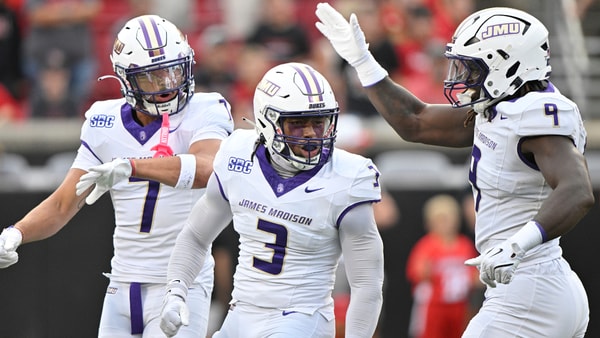
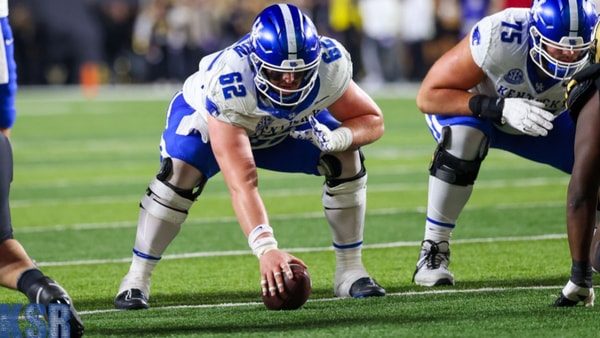

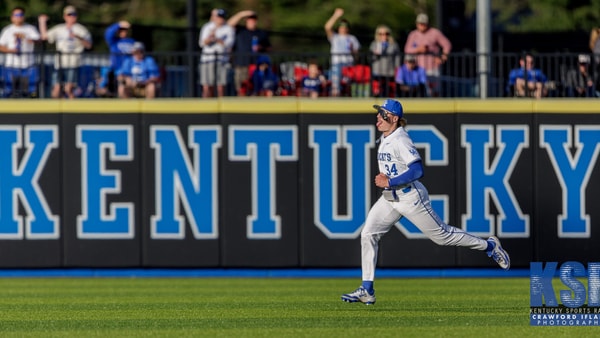
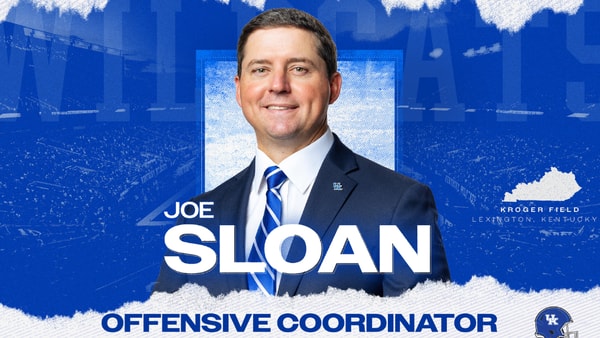
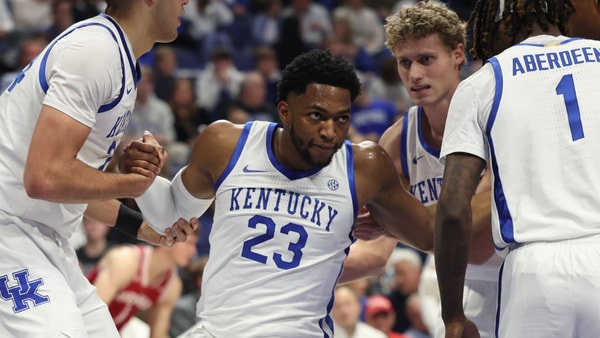

Discuss This Article
Comments have moved.
Join the conversation and talk about this article and all things Kentucky Sports in the new KSR Message Board.
KSBoard